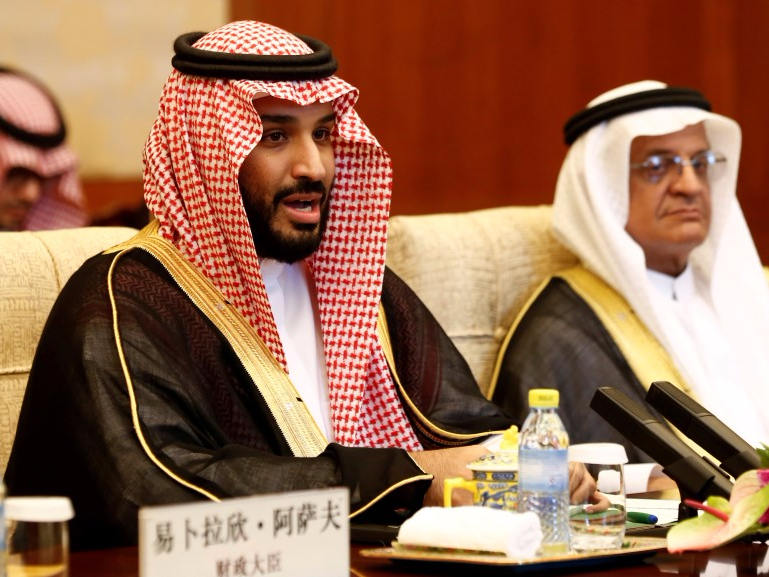Oil hits 2-year high after Saudi Prince kicks-out officials in anti-graft probe
November 6, 20172K views0 comments
Oil traded near the highest level in two years, since July 2015, after Saudi Arabia’s Crown Prince, Mohammed bin Salman, ousted officials during an anti-graft probe in the world’s biggest crude exporter.
Futures rose as much as 1.2 percent in New York, gaining for a third session. The purge by the prince, known overseas as MBS, included a member of the royal council overseeing state oil company Saudi Aramco and one of its directors. In the U.S., the rig count fell to the lowest level since May, Baker Hughes data showed.

“The key question now is whether MBS has launched or pre-empted a new destabilizing ‘Game of Thrones’ by arresting his relatives in such dramatic fashion,” said Helima Croft, head of commodity strategy at RBC Capital Markets LLC.
Oil has risen for four straight weeks on signs that global inventories are shrinking and the Organization of Petroleum Exporting Countries and allied producers will extend their glut-reduction accord beyond its March expiry. Saudi Arabia, Iraq and Kuwait, which together pump more than 50 percent of OPEC’s crude, have signaled firm support for an extension.
Nigeria’s central bank governor, finance minister bullish on naira, investors loss confidence
West Texas Intermediate for December delivery advanced as much as 64 cents to $56.28 a barrel on the New York Mercantile Exchange, the highest since July 2015, and was trading at $55.94 as of 10:21 a.m. London time. Total volume traded was about 31 percent above the 100-day average. Prices on Friday added 2 percent to settle at $55.64.
Brent for January settlement climbed as much as 1.3 percent to $62.90 a barrel on the London-based ICE Futures Europe exchange and traded at a $6.28 premium to WTI for the same month. The global benchmark crude increased 2.4 percent to $62.07 on Friday, the highest close since July 2015.
Security forces arrested 11 princes, four ministers and dozens of former ministers and prominent businessmen, according to Saudi media and a senior official who spoke on condition of anonymity.
“Anything to do with Saudi Arabia is a bit unsettling for the oil market, but there’s no indication at this stage of any issues that may lead to a supply disruption,” said Ric Spooner, an analyst at CMC Markets in Sydney. “Oil is continuing to probe for a level that will attract new short-term production, particularly from U.S. shale, and we haven’t yet seen evidence of that.”
